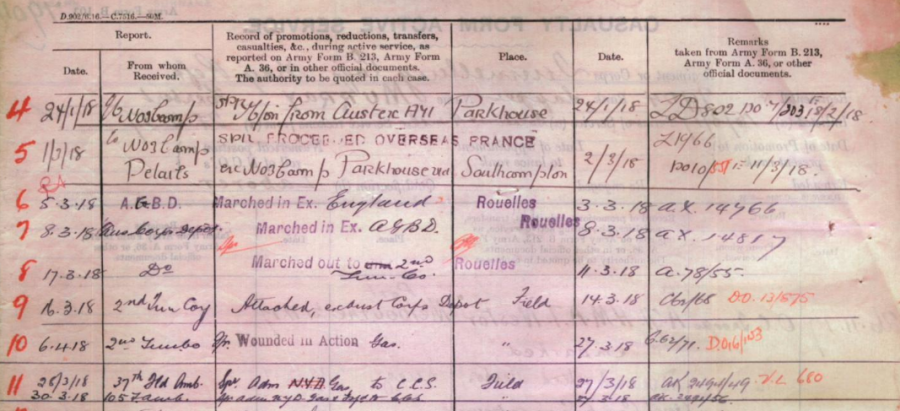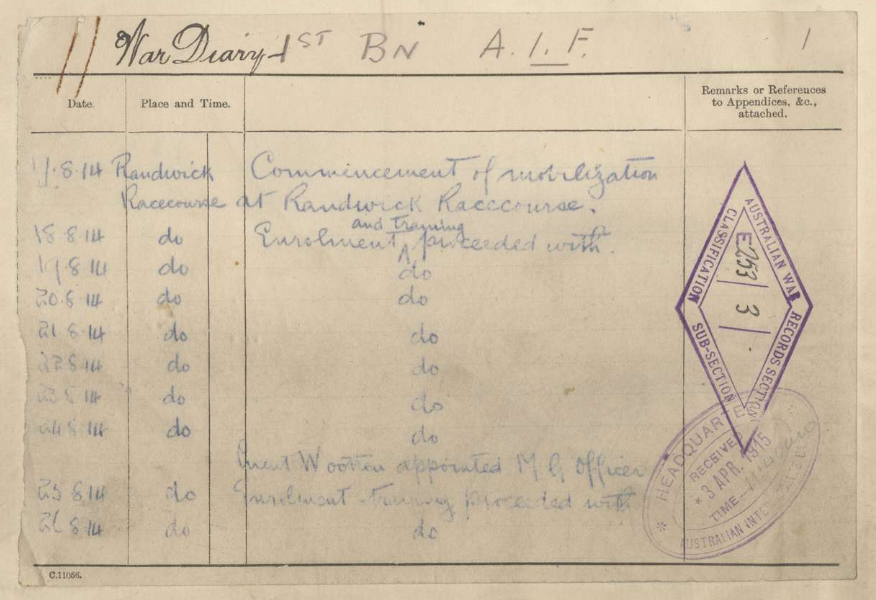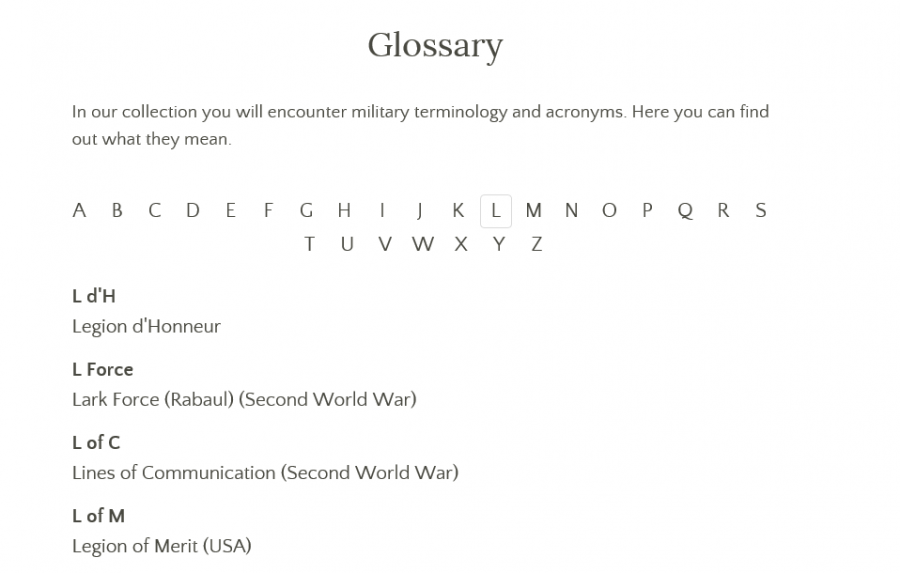Researching your military family history
Each year the Memorial responds to over 10,000 public enquiries, many from family historians investigating the military career of a relative. These questions are answered by a small team of dedicated reference officers in the Memorial’s Research Centre, who work hard scouring databases and uncovering collections to assist people with their research.
As August is family history month, we would like to share some of the most common enquiries we receive from family historians.
Composite group portrait of Mary and Henry Hutchins, of Woorinen North, Vic, and seven enlisted sons.
I’m looking for a service record…
Our most frequent request is for the service record of a family member. Service records are the most authoritative source of information about an individual’s military career. It surprises many to learn that the Memorial does not hold these records.
Service Records for the First and Second World Wars are held by the National Archives of Australia.
First World War service records have all been digitised and can be accessed online.
The National Archives are progressively digitising service records for the Second World War. You might find the record of a relative is already freely available online.
The National Archives has a helpful guide to accessing service records: https://www.naa.gov.au/explore-collection/defence-and-war-service-records
Where did my relative serve, and what did they do?
Often a researcher might have a service record and be looking for further information
The information on a service record can sometimes appear vague, with information about locations described at country level, or with events described as happening “in the field”.
To obtain detailed information about where a person was serving and what activities they may have been undertaking, you need to research the records of the unit they were serving with.
Army war diaries, found within the Memorial’s collection of Official Records (i.e. records created by the government), provide summary sheets of units’ location and activities. Diary appendices can also be a valuable source of information, including documents such as casualty reports, movement and activity orders, diagrams, maps, plans and photographs, rations and reprimands.
As unit war diaries are operational records of the unit as a whole, they often don’t mention individuals serving with the unit, but are an invaluable source of contextual information for researchers.
Army diaries of the First World War, Korean War and south-east Asian conflicts have been digitised and can be accessed online via the Memorial’s website: https://www.awm.gov.au/learn/understanding-military-history/unit-diaries
Second World War unit war diaries are being digitised by the Memorial. You can read more about this project and access digitised unit war diaries here: https://www.awm.gov.au/about/our-work/projects/digital-collection/access
Reports of Proceedings are the official record of activities of the Royal Australian Navy, submitted monthly or quarterly during war and peace. The Memorial has digitised our holdings of Reports of Proceedings and made them available on our website: https://www.awm.gov.au/collection/C1420122
If your relative served in the Royal Australian Air Force, their unit records are Operations Record Books. Copies of these are held by the Memorial and the National Archives of Australia. The National Archives have digitised some of their holdings, the Memorial’s collection has not yet been digitised. For more information about RAAF records at the National Archives: https://www.naa.gov.au/explore-collection/defence-and-war-service-records/royal-australian-air-force
*Please note: you do need to know which unit an individual as serving with and the period of their service to access relevant entries in the unit records. This information will be found on their service record.
Can you tell me what medals my relative was awarded?
We receive many enquiries from those wishing to know what honours and awards their relative received for their service, particularly around Anzac Day.
For First World War service, the campaign medals an individual received are recorded on their service record.
For service in conflicts after the First World War, this information is not usually included on an service record. You may need to submit an enquiry to Defence Honours and Awards: https://www1.defence.gov.au/adf-members-families/honours-awards/defence-medals-application-form
Can you help me interpret a service record?
Service records contain acronyms and references to records which may no longer exist. Interpreting service records can be a lengthy process, and sometimes the meaning of a term of symbol can’t be determined.
Although we can’t interpret a service record for you, we can point you towards some useful resources.
The Memorial’s glossary contains frequently used military abbreviations and terms, many of which you will encounter in a service record.
The National Archives of Australia has a helpful list of abbreviations found in First and Second World War Service Records: https://www.naa.gov.au/explore-collection/defence-and-war-service-records/researching-war-service/abbreviations-used-world-war-i-and-world-war-ii-service-records.
The Virtual War Memorial has some wonderful guides to reading service records, and also acronyms and abbreviations that can be found on them: https://vwma.org.au/research/how-to-guides-to-research
Do you need a little help with your research?
If you’re stuck with your research, why not send us a military family history enquiry?
Although we can’t do your research for you, our Reference Officers can provide advice about records that can help you with your military family history research.



